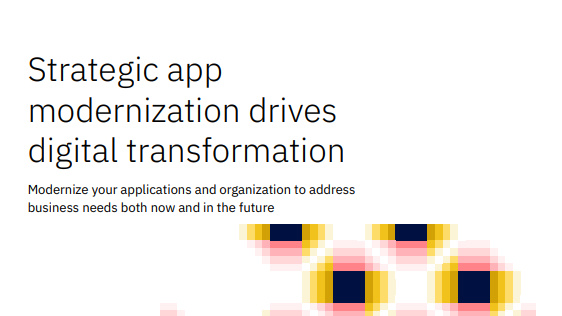Firms are relaxing qualifications requirements to fill positions as tech skills shortages skyrocket
Tech skills shortages have become such a pressing matter that hiring managers are scrapping stringent skills requirements to get staff in the door


Rampant tech skills shortages are prompting firms to relax long-standing skills requirements while recruiting for new staff, according to new research.
A new survey of 15,000 professionals, including 1,350 in the tech sector, conducted by recruitment firm Hays found tech leaders are reacting to industry-wide skills deficits by focusing more energy on upskilling new staff.
More than three-quarters (78%) of tech employers said they are likely to hire someone who doesn’t have all the required skills with the intention of upskilling them in the future.
Similarly, 75% of these tech employers believe an employee's willingness to learn is more important than their existing skill set.
Another key finding of the research was that 38% of those in charge of hiring tech professionals now say having a degree is ‘not important at all’, compared to 19% who said it is ‘very important’, and 43% who said it is ‘quite important but not essential’.
James Hallahan, chief strategy officer at Hays, said rampant skills shortages have prompted this change of focus for hiring managers in the tech sector while firms scramble to fill vacancies.
“It’s clear that hiring managers are becoming more open-minded and willing to welcome on board a diverse range of tech professionals regardless of their educational background or even current skill set,” he said.
Sign up today and you will receive a free copy of our Future Focus 2025 report - the leading guidance on AI, cybersecurity and other IT challenges as per 700+ senior executives
“Whilst degrees are still valuable, we are likely to see more employers hiring for skills and potential in the year ahead.”
Firms need to accept tech skills shortages will continue
Speaking to ITPro, Jim Moore, employee relations expert at HR consultancy Hamilton Nash, said a dwindling talent pool in the tech industry is making it very hard to hire skilled staff.
“The technology sector is facing ongoing labor shortages, driven mainly by a limited talent pool creating stiff competition for qualified individuals” he reported.
“Changes in migration policies post-Brexit now require overseas candidates to be sponsored as skilled workers, which adds to the recruitment obstacles.”
As a result, firms will have to accept some skills gaps in order to fill vacancies, Moore said.
“Employers can improve their chances of filling a post by compromising on experience and accepting some skills gaps, although this is not ideal.”
RELATED RESOURCE

Discover the four steps to successful application modernization
DOWNLOAD NOW
Moore outlined how skilled professionals are taking advantage of the new demand by demanding higher salaries and that relaxing skills standards might help firms avoid paying an added premium for skilled staff.
“The competition for fully skilled candidates is also keeping salary demands very high, so by accepting candidates with gaps that need upskilling, employers may be able to negotiate a slightly lower salary to offset the training costs.
“There is still considerable economic uncertainty in the tech sector, with many multinational IT houses maintaining a hiring freeze or planning for potential downsizing over the next six to 12 months. If this happens, the hiring dynamic may flip, with post-redundancy job seekers exceeding the number of available vacancies.”
Employers report increased worker demands
Flexible working is another core area where new norms are being defined by workers, according to Hays.
Only 15% of tech professionals are based in the office full-time, compared to 43% of professionals spoken to by Hays who don’t work in the tech sector.
The majority of tech professionals are either working in a hybrid office (43%) or are already fully remote (42%), demonstrating the shift away from the office in the tech sector.
Attitudes of employees in the tech sector have evolvedIn light of this reality, where 60% of tech workers told Hays they would not consider taking a job that didn’t offer hybrid working, compared to 43% overall.
Technology businesses have reoriented accordingly, the results show, with 73% of those surveyed already offering hybrid working to their staff, with just 26% saying staff will be required in the office more often in the future.

Solomon Klappholz is a former staff writer for ITPro and ChannelPro. He has experience writing about the technologies that facilitate industrial manufacturing, which led to him developing a particular interest in cybersecurity, IT regulation, industrial infrastructure applications, and machine learning.
-
 What is Microsoft Maia?
What is Microsoft Maia?Explainer Microsoft's in-house chip is planned to a core aspect of Microsoft Copilot and future Azure AI offerings
-
 If Satya Nadella wants us to take AI seriously, let’s forget about mass adoption and start with a return on investment for those already using it
If Satya Nadella wants us to take AI seriously, let’s forget about mass adoption and start with a return on investment for those already using itOpinion If Satya Nadella wants us to take AI seriously, let's start with ROI for businesses
